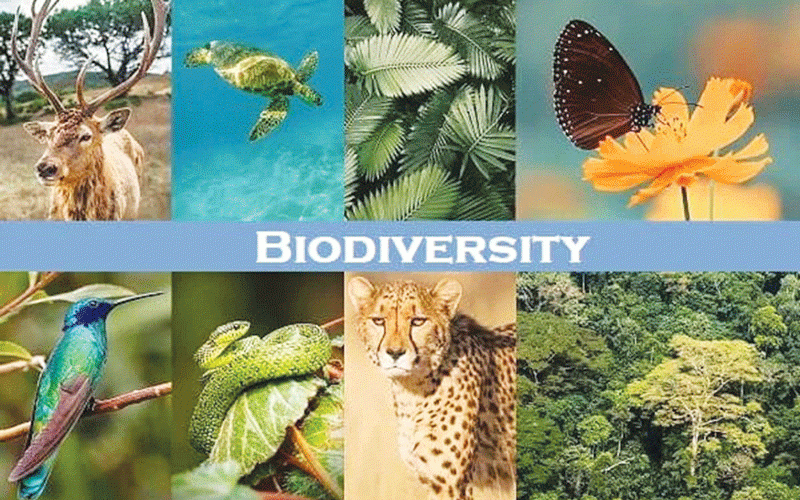
AS the sun dips behind the majestic peaks of the Drakensberg Mountains, a quiet village in the heart of rural South Africa comes alive with the whispers of an ancient debate.
The Drakensberg Mountains are located in the KwaZulu-Natal province of South Africa, though they also extend into the Eastern Cape province.
For generations, the people of this land have nurtured a deep connection to the rich tapestry of life that surrounds them — from the towering baobab trees to the vibrant diversity of medicinal plants.
However, in recent years, this delicate balance has been disrupted by a new wave of researchers and multinational corporations, all seeking to unlock the secrets hidden within the region's genetic resources.
In the shadows of this modern-day gold, diamond and lithium rush, a complex and often acrimonious struggle has emerged, pitting local communities against powerful interests that seek to exploit their traditional knowledge and natural wealth.
While the promise of new medical breakthroughs and economic opportunities is alluring, the lack of effective regulation and the unequal distribution of benefits have left many feeling betrayed and powerless.
This story delves into the heart of this critical issue, giving voice to the concerns of national and regional development experts, government officials, and the indigenous communities who are fighting to reclaim control over their rightful inheritance.
From the sprawling savannas of Namibia to the lush forests of Mozambique, this in-depth feature story will uncover the intricate web of power, knowledge and justice that lies at the core of the battle for southern Africa's genetic wealth.
- Zim headed for a political dead heat in 2023
- Record breaker Mpofu revisits difficult upbringing
- Tendo Electronics eyes Africa after TelOne deal
- Record breaker Mpofu revisits difficult upbringing
Keep Reading
The lush landscapes of southern Africa harbour a staggering array of life — from the towering baobab trees to the majestic elephants that roam the savannas.
This biodiversity has long captivated the world, drawing researchers and pharmaceutical companies in search of the next medical breakthrough.
However, as the region's genetic resources become a valuable commodity, local communities are increasingly finding themselves on the losing end of a high-stakes battle for control.
"We have watched as our traditional medicines and cultural heritage have been taken, studied and patented without our knowledge or fair compensation," lamented Thando Mbatha, a community leader from the KwaZulu-Natal province, in a recent meeting.
"This is not sustainable development — it is a new form of colonialism, where our very essence is being extracted and commodified,” he asserted.
In recent years, a concerning pattern has emerged across the region. Researchers, often from wealthy nations, have descended upon remote villages, extracting samples of plants and animals with little input or consent from the people whose ancestral knowledge and lands have sustained these resources for generations.
"The biodiversity of southern Africa is a treasure trove, not just for scientific advancement, but for the livelihoods and cultural identity of indigenous communities," explained Esther Nkosi, a regional development expert, in a recent conference.
"Yet, the lack of effective and enforceable regulation in the fields of genetic technology and intellectual property law has made the region vulnerable to exploitation," she asserts.
This imbalance has led to acrimonious encounters between researchers and local communities, who proclaim that they have documented indigenous knowledge systems (IKS) and experiences involved in the development of certain plant-based medicines or other genetic resources.
However, the results have been far from satisfactory.
"We want to be partners in this process, not mere bystanders," said Sipho Mthembu, a traditional healer from KwaZulu-Natal, South Africa, in a recent interview.
"Our IKSs have sustained these resources for centuries, and we deserve a fair share of the benefits when they are commercialised," she noted.
Government officials across the region acknowledge the challenges in crafting effective regulatory policy frameworks to protect indigenous rights and resources.
"It's a delicate balance,” said Tatenda Mutasa, a senior official in Zimbabwe’s Environment, Climate and Wildlife ministry, in a recent paper on understanding regulatory policy frameworks across regions.
"We want to encourage scientific research and innovation, but not at the expense of our communities' sovereignty and intellectual property," he said.
One particularly famous and contentious case involved the patenting of a plant-based compound found in the Hoodia cactus, traditionally used by the San people of southern Africa to suppress hunger and thirst.
Despite the San's millennia-old knowledge of the plant's properties, a South African research council licensed the compound to a pharmaceutical company, which went on to develop a lucrative weight-loss drug without adequately compensating the San.
"That case highlighted the urgent need for stronger legal policy frameworks and benefit-sharing mechanisms," said Mutasa.
"We cannot allow our natural resources and traditional knowledge to be exploited for private gain, without equitable distribution of the rewards," he affirmed.
Experts argue that the solution lies in fostering and strengthening meaningful collaboration between researchers, companies and local communities, underpinned by a shared understanding of indigenous rights and the fair distribution of benefits.
“It's not enough to simply consult communities after the fact,” Nkosi said.
“True partnership means involving them from the very beginning, respecting their expertise, and ensuring they have a genuine stake in the process and outcomes."
IKS, say experts, provide innovative, sustainable solutions when transformed and applied to changing economic, demographic and political pressures. Tapping into this community expertise is crucial for local and national survival and economic development.
"Local ecological knowledge holds the key to unlocking community-driven solutions for navigating complex national development challenges and forging pathways to economic and national resilience,” said a Development Studies Lecturer at the University of Zimbabwe.
For Thando Mbatha and others like him, the stakes remain high.
"Our lands, our medicines, our stories — these are the lifeblood of our communities. When they are taken and commodified without our consent, it robs us of our identity and our future,” he said.
As the region's biodiversity becomes an increasingly sought-after prize, the battle for control over southern Africa's genetic riches is far from over.
But for those on the frontlines, the fight to protect their rights and resources has never been more crucial.
"We are the custodians of this land and its bounty," Mbatha asserts. "It is time for the world to recognise that and to work with us as true partners in shaping the future of our shared planet."










